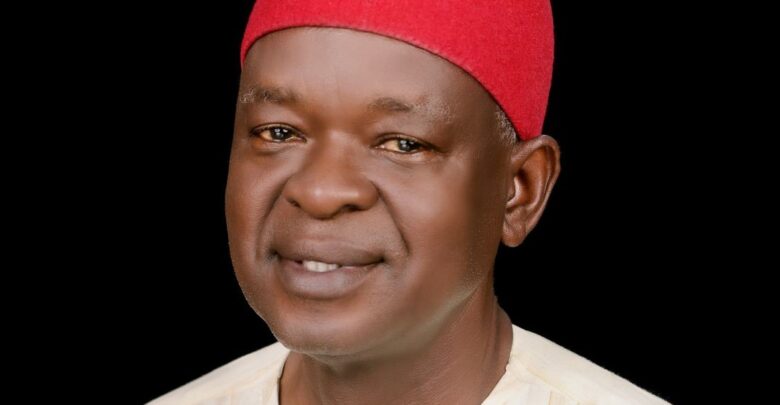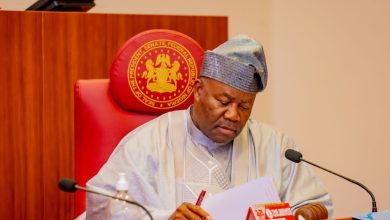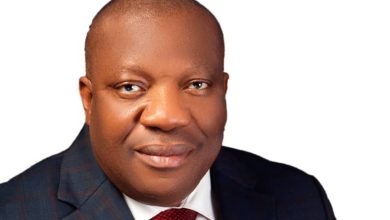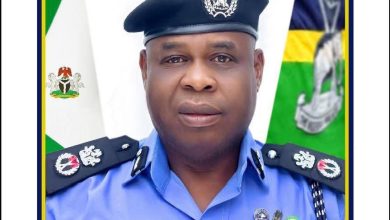
Frank Nsebeolisa Onike (Ph.D), a renowned geologist and consultant, is the first son of late Madam Caroline Onike of Amatutu village, Agulu in Anambra State. He took time off to eulogize his late mother and also took a swipe on some trending national and state issues in this exclusive interview with Crystal Express. Though retired after a meritorious civil service, Frank said he is still eager to contribute towards the development of the nation in related capacity.
Excerpts
Please let us meet,
I am Mr. Frank Nsebeolisa Onike. I am the first son of late Madam Caroline Onike, who will be buried this weekend after a life well spent on earth. I am a retired civil servant. I worked in Kaduna. I am a geologist by profession and I had my PhD in geology in 1985. I retired recently.
It appears your job actually took you out of your state of origin. Which States in the country did your job take you to in your active years?
I have traversed the country in the course of doing my job at the Office of Natural Steel established in 1971 after the Nigerian Civil War to explore raw materials for the iron and steel industry. In the process of doing that we got involved with clay exploration, dolomite. I have worked in Okene, Ozara exploring for dolomite up to Abeokuta in Ogun State and few other states. I actually moved around the country.
After a hard work, how are you enjoying your retirement? Are you resting or still willing to take up new jobs?
Oh, I am willing to take up new jobs and new challenges. I am retired but not tired and will want to explore new grounds. I wouldn’t mind a consultancy job in industrial minerals, which are used in the industry and exploring and ensuring that they are the best for the purpose they are meant for. That is my area of specialization. I am still very available and have been involved in one or two exploration activities since I left office.
It appears you are not keen about politics.
Well when we were in the civil service, we were told not to belong to any party and most of us grew up apolitical. But it doesn’t stop us from lending our yoke to constructive criticism and punctual write-up on issues like why the nation needs iron and steel industry and why it shouldn’t be allowed to die and then the need to add value to the raw materials that we are producing rather than exporting raw materials which makes the nation to lose jobs for youths.
But if we have to add value to the minerals that we explore, then there will be challenges to develop manpower resources in those areas. It also calls for engagement of universities to develop the machines that can be used for refining and upgrading the qualities of these materials. But because we export without upgrading, we intend to lose along the line on those downstream sectors of the solid minerals industry.
What could be the challenges stopping Nigeria from making Ajaokuta Steel Company work but rather still depending on iron and steel importation such that even the Qua Steel Company in Akwa Ibom collapsed too?
The one you had then in Akwa Ibom was a local smelting industry. They smelt iron materials. But we are talking about obtaining iron and steel from the raw materials. So Ajaokuta in the real sense of it never really worked. For Ajaokuta to work, it needed to ignite the coke oven, the blast furnace and once it is ignited, it needs to last for seven years and upwards without power failure because if you record one, you have to strip and rebuild again. It is an industry that needs high manpower, dedication and others.
But Nigeria is a funny country where everything is politicized. Industries do not respect the law of politics they respect the law of economics. If you site things in the wrong places, they are bound to fail. For instance in Britain, burnt brick factories are sited at the same area the raw materials are found so you don’t have to move earth materials over long distances and it is also sited in the area where there’s a high consumption rate; that way industries can survive.
If you now site industries like iron and steel industry in a place without raw materials, there is this task of moving raw materials over a very long distance which creates problems and challenges and when you add up logistics, you find out that you’re already running at a loss even before the production is out. So industry survival does not operate the laws of politics but that of economics. Our problem is that we politicize industrial siting and they don’t last. It is part of our major problem.
We have to be focused and call a spade a spade. Another problem is the over-focus on oil industries to the detriment of other sectors, especially the solid minerals.
After your duty tour of the country, you are finally back home in Anambra State created in 1991. How would you rate the development of the state so far?
Our people are very ingenious people and very enterprising, all we need is that kind of leadership that will galvanize the people to productivity. But incidentally the leaders we have, owing to self-aggrandizement, have compromised so many things. If we are able to galvanize ourselves alone in Igbo land, we will set the pace.
Before the Nigerian/Biafran War, the Igbos were rated as having one of the fastest growing economies in the world, the South-East of Nigeria then. In Anambra State for instance, nobody had thought we will have good roads because we were waiting for the Federal Government. But Peter Obi came and made so much difference as governor because he was judicious with the state’s resources.
Again, he wanted the best for the state and was a selfless man. Today Anambra road networks are unique because of his efforts in roads construction. If we have a leader again in his mould to concentrate on industries, then in few years we will have small, medium and big industries scattered all over the state as we have in China and South Korea. These are the things that ginger development.
Do you think that Nigeria has been fair to the Igbos when it comes to sharing leadership position of the nation?
The truth about the matter is that those who lose a war always suffer the consequences. The Germans after the First World War were pocketed. They were not allowed to develop. Issues arising from that led to the Second World War. And even after the Second World War, we know when the Berlin wall was brought down. Anytime there is war and you are defeated, your conquerors will like to cage and make sure that you are not developed. They ensured that the Calabar, Onne and Warri ports are not functioning and ensured that only Lagos is functional. This also forced Easterners to locate about 70 per cent of their industries there.
What is happening to the Igbos is not uncommon. What we need is concerted efforts together to be able to overcome it. That entails looking towards building our capacity and then when you burst out, your traducers will not battle you anymore.
Read also: Rotational Presidency And The South-East
Talking about your family now, how was it like growing up under your late parents?
For what I am today, I give them the credit. They came from poor background, worked very hard to make sure that we have a future, taught us the virtues of patience, hard work, total belief in God, putting your best in everything you do to excel and more so the virtue of being patient and awaiting God’s turn in your efforts were things they taught us. These virtues have sustained me and also my siblings. We were brought up in a very strict Christian home and we were of the Roman Catholic sect, we always start our day by committing it into the hands of Almighty God. We say our Rosary and then go out and work hard. My father would go out in the morning and not return till late in the night. My mother would go for her own job and would return around 5 or 6pm. So we knew early that if you want to succeed in life, you need to work hard. And to be a good wife, you needed to be strong, hard-working and productive to care for the family.
Were you opportune to be around your late mother during her last days on earth?
She passed on in February and I was with her virtually the whole of January. I left her early February and she passed on two weeks after I left her. I am glad that those final weeks I had the opportunity of being with her. I was very close to her and we had gist a lot together. She was a great storyteller and could hold you spellbound for hours with stories and most of those stories had deep moral lessons. She was a very loving, caring and wonderful mother.
During her days, she must have participated actively in Church or community services. Could you please throw light on them?
She was a very good Christian, prayer warrior. In church she belonged to virtually all the societies from the St. Mary to St. Anthony of Padua. She was very hospitable and took everyone as her child. She gave without restriction and when she cooked, it was for all irrespective of who you were and where you came from. She saw feeding people as fun. A lot of the young people who will troop to her burial ceremony are those who had enjoyed her benevolence and all regarded her as their mother. She could sacrifice for people’s happiness. In her family she was the second child but accepted to stay back, take care of the domestic animals for the family to raise money to train their first child. That she did with joy and happiness.
Related: The Matriarch: Caroline Amaliwu-Aku Onike
Now that she is no more, what will you miss most about her?
I remember that when she died and I visited the family compound, notwithstanding the adage that “men don’t cry”, I went to a corner in our compound and wept profusely. I emptied my tears out because I knew a part of me had gone. However, I know that the Bible says that we shouldn’t cry like people without hope. Thereafter I held myself knowing fully well that she has made heaven and will be praying for us. She was a caring mother and her death shocked all of us. She had eight of us in number -four boys and four girls. She over-pampered me and made me to go live with her elder brother who taught me so many things to become a better man and it was all fun.
Are you from part of the Agulu where the former Governor Peter Obi hails from?
Yes. We are from the same community but that was not the reason I praised his administration. I spoke very well about him because he did a very good job and we want leaders who can replicate at least 50 per cent of what he did and Anambra State will make progress and soar higher.
You must admit that ex-Governor Peter Obi so much favoured Agulu community with several roads and other projects. Didn’t he?
No, the reverse is the case. Peter Obi didn’t give anybody any position in my village because he was the governor. The truth about the matter is that what we asked for was good governance and a good governor is about somebody that sites things in his village, he swore to be the governor of Anambra State and the entire state was his domain of activities. And in that regard, he did wonderfully well.
Taking a little swipe at the person he handed over to, Mr. Willie Obiano, how would you rate him?
I was in Kaduna and when I came home, I was told he was trying. Times are different. You need a very disciplined person to cut politicians to size otherwise they will cage you and force you to do things you don’t plan to do. He may not have the Midas touch of Mr. Peter Obi but he is also doing his best.
You are the first son of your father. Your immediate younger sister was married to a man from the old Cross River State, now Akwa Ibom, something very strange at that time in an Igbo community such as yours. How did it happen?
My immediate sister found love and married a prince from Akwa Ibom and I too have to retaliate and got married to an Akwa Ibom woman (long laughter). This tells you who my parents were, they believed you can get good people anywhere, all you need do is pray to God to give you your own.




